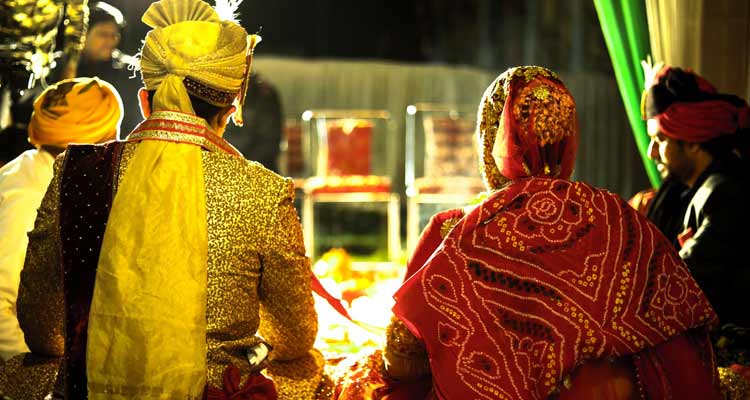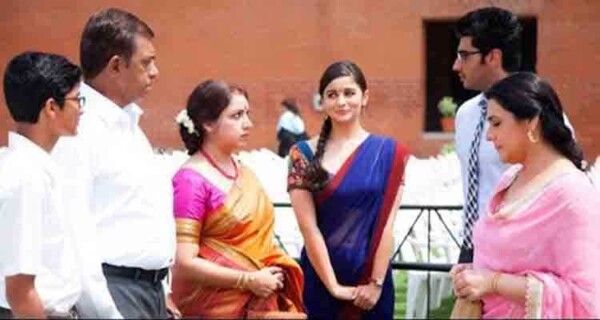I don’t want marriage if it means marrying an entire family
Table of Contents
A few days ago I was talking to this young lady of 21, who was vehemently opposed to the idea of getting married. She was okay with having a partner, children even, but not marriage. “If I get married, my entire life would be spent living up to the expectations of two families. If I don’t get married, I can have my own life,” was what she said.
She got me thinking. In Western countries, so many people opt not to marry but have a wonderful home front. In fact, in an interview, one of Hollywood’s longest lasting couples, Goldie Hawn and Kurt Russell, said their relationship survived for 34 years because they did not get married.
Young India is now waking up to the possibility of partnership without marriage, because, for too long, the Indian marriage has been succumbing to the demands of the Indian family. After marriage one might be moving to a new apartment, even moving to a new town, but often it’s hard to escape the family and the baggage it brings.
I give you 5 reasons why the Indian spouses are finding it hard to cope with the mounting pressures of the Indian family.
1. You are married to the family not to the spouse
My super rich friend was getting married to her super rich boyfriend and they wanted to have a destination wedding in Greece. Both families were excited about the idea of a destination wedding but her mom wanted it in Phuket and his mom wanted it in Udaipur. From that point, starting from the destination, to the colour of the bride and groom’s attire, to the menu and the wine, everything became a battleground between the two families. The wishes of the much-in-love couple were quickly shoved aside with the remark “you are too young to know anything” and the battle continued.
Days before the wedding I felt sorry seeing my friend looking hassled, burdened and tired. I kept wondering, if this is the situation pre-marriage, what would happen after marriage?
But that is the fact. It might not be a destination wedding, it might be just a simple wedding with saat phere, but the reality remains the same. Once you are married you are forever giving up the right to be just a couple out and about on your own. The moment you say the vows you become a part of a super-extended family where everyone’s feelings matter except your own.
The moment you say the vows you become a part of a super-extended family where everyone’s feelings matter except your own.
2. Interference is something you have to live with
It is the birthright of every member of every Indian family to interfere in your affairs. You have to accept that and give them their due.
Recently, after the demise of an uncle, I went to visit his family. The entire family came down to share the grief and also discuss the last rites, how the event would be held and what would be the menu.

The tired daughter-in-law of the family, who had been dealing with a stream of guests coming down to convey their condolences, was taking a quick nap in her room in the afternoon. When teatime came, some random aunt decided that the daughter-in-law should be woken up, because she was the chosen one to make the tea despite two servants being present.
In an Indian marriage, one thing that comes free in dollops is advice. Starting from your own in-laws to your parents to random aunts and uncles and cousins, you will be told the right way to do things.
Starting from your own in-laws to your parents to random aunts and uncles and cousins, you will be told the right way to do things.

My friend moved from Kolkata to Bangalore after her wedding and lived with her husband. Every single day her mother would call her up and ask her what she was cooking. The mother would throw a fit if she told her she’s just made chicken or a sabzi and roti. Because in their home it was unimaginable to have anything less than five dishes on the table during meals. A busy professional and a wary cook, my friend started avoiding her mother’s calls, because it always ended up in an altercation over food. Then her husband suggested that she cook up dishes over the phone instead of on the stove. Then some semblance of peace prevailed.
3. Nothing is too personal
If you have stepped into an Indian marriage, chances are you will be asked a very personal question at the drop of a hat without anyone considering it to be a personal question in the first place.
“When are you having a baby?” is a question that could be asked in the middle of a roomful of people, without you even being expected to give the time frame, but the blush that would reach your ears would be enough for an answer. Different people have learned to deal with this question differently, but no married Indian couple has escaped it, unless of course they conceived on the wedding night. But for them the next question is always ready, “When are you planning for a brother or sister for your child?”
And in case you have some fertility issues and have shared it with someone in the family, then expect it to spread like wildfire and every family member to turn up with the phone number of a fertility specialist. Then be prepared to answer them with all the details of your fertility treatment.
4. The girl’s family is capable of wreaking greater havoc

Earlier, according to Indian custom, once the girl got married, her family would not interfere in the workings of her sasural. But now the parents of the educated lady, who often earns a fatter pay cheque than her husband, feel they have a greater say in the workings of their family life by dint of the girl’s credentials.
So they want their laadli to live in as much comfort as she had in her maika. From the quality of milk to be had in the household, to the car to be used in the family to the mattress the daughter is using, the girl’s family has a say in everything.
Not to mention the question of how her earnings should be spent, invested and shared with her maika.
Related reading: When her mother’s interference became too much for me
5. There is no end to expectations

i was talking to this young lady the other day who got married a year back. Since her husband is in Delhi and she has a good job in Kolkata, she has not yet moved to Delhi. But she is expected to live with her in-laws who live in the suburbs, travel in local trains over one and a half hours each way every day and when she visits her husband, her in-laws and often some aunt or uncle accompany her. She looked cheerful and unfazed by the arrangement, but I wondered, how long would she be able to endure the pressure of her Indian family on her Indian marriage?
Expectations are endless and often unrealistic, but the Indian marriage most often bows down to the expectation of the family, sacrificing the needs of the marriage at the altar of duties.
That is why we hear so often of people leaving their careers behind abroad or in some other city of India to move back home to look after old or ailing parents.
That is why you can’t tell a relative not to stay at your place, even if your child’s board exams are imminent. You can’t tell them that you would rather have a simple registered wedding and prefer to spend all the money on an exotic honeymoon, and you can’t tell them you don’t believe in feeding people at shraddh ceremonies.
It’s all in the family
It is common to lend cash to bail out an uncle from his failed business, to fulfil a cousin’s MBA dream or just get that gold necklace for a cousin lest her mother-in-law bothers her after her wedding. Lending in this case means not expecting the money ever to come back. If that means you have to stall painting your own house for two years, that’s fair enough.
And when it comes to decision making, nothing can happen without consulting the extended family. That is why a marriage, a career move, deciding on the school for a child or his or her career path is often a round table conference of family members.
And as the days go by, you find that the Indian family has taken over a much greater space in your Indian marriage, pushing your priorities and aspirations to the backburner.
Here’s how Indian parents react to their daughter’s guy friends
Your contribution does not constitute a charitable donation. It will allow Bonobology to continue bringing you new and up-to-date information in our pursuit of helping anyone in the world to learn how to do anything.






















Good points, but the situation isn’t as dire if the couple has a good understanding, and there is clear assertive communication to his side of the family by the husband (not because he is ‘superior’ but because in our patriarchial society usually the man’s parents create more trouble). This is just to say that anyone considering marriage should take heart! Our generation is undergoing a major shift and what was acceptable to our elders isn’t to us. So take it easy and keep communicating.
Let’s face it. Beginning a married life in India is no cake’s walk. Considering the way our family life is structured , and the expectations attached to the new coming members in the family, makes it seem so intimidating and chocking an affair. And as a young woman, when i contemplate, why as today’s youth are so petrified of the prospect of a married life, i find that it is rooted in the dynamic changes , we as a generation have gone through. Today, the expanded prospects of education, job life, the availability of new media , the new outlooks towards individuality , the significance of a personal space that is one’s own- all of it has contributed in our growing sense of individuality and our inclination towards a democratic approach towards life. We have our own dreams, preferred life style and what not – and in the midst of all these , the added prospect of indulging oneself into the expectations and demands of yet another family feels scary , and petrifying at the very first instant. But then, if an effort is put from both the families to understand the two young people setting out to make a new life, with their own understanding and preference of life, and cooperate them, then maybe they would stop escaping. And also, the partners must share the love and responsibility to each other’s family. It should nourish them, help them grow together. Then, i feel, we can expect a better tomorrow where marriage do not seem like a threat any more.
It is as true as anything. And sometimes I simply fail to understand that is it that how these super brainy people who have a lot of time to care for others, manage their own business. please dear victim couples be Daisy Shah and say to them- my business is my business and none of your business.
I totally agree with all the points!
The couples actually have no say until and unless their elders approves of it. Sometimes, you have to do those things that you are not willing to and vice-versa. Eventually, this might lead to frustration and family bonding will be impossible.
And yes. I don’t know why so much of expectations??? Please do not expect much and accept the girl or guy as they are, Do not overburden them with your endless expectation, Please!